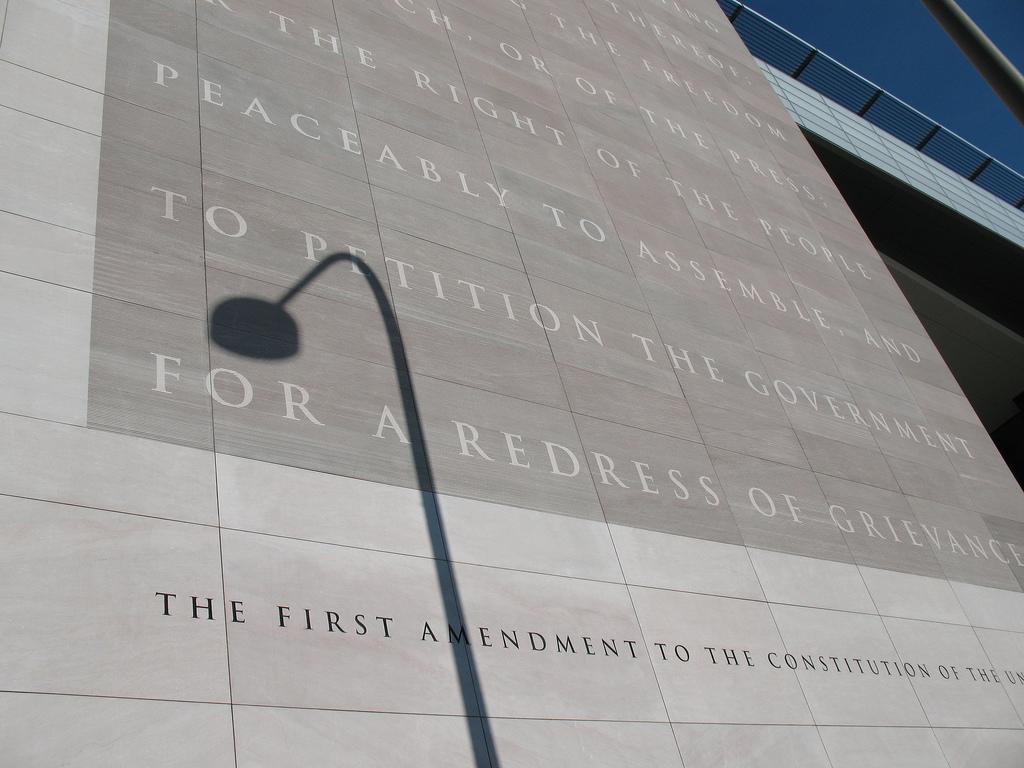
An Australian in the United States is branded on the tongue. The moment you speak, the accent reveals all. They know you’re not from around here.
In previous decades, the question was usually whether you were English or Irish. As a bloke in Maryland joked the other day, taking me for a Pom: ‘We Americans think you people speak our language real good.’
On the accent front, I report progress. These days, Australia is often the first guess, so there’s a fraction more recognition of the land of Oz. And this time I haven’t once had the comic confusion over Austria or Australia.
Another difference flowing from the branded-on-the-tongue moment has been noticeable during our six weeks in Washington, New York and up the East Coast.
During previous visits—under Reagan, Clinton and Obama—being heard as not from ’round here never once triggered a question about what the outsider thought of the US president. The US is a world confidently unto itself, so in the past there was only mild interest in views about America. But the personality of the president never used to come up. It does now.
Grappling with the meaning of Donald Trump has trumped questions about kangaroos and what season it is in Oz. That’s why it was no surprise to see a glum Malcolm Turnbull as one of the faces on the cover of Foreign Affairs magazine’s September/October edition reporting on how allies are responding to Trump: ‘The view from abroad’.
My random sampling finds that the viewers within America are just as mystified. Lots of people around here are pondering what it is they’re seeing in the White House. Some are amazed and scared and outraged. Some, though, love what they see: The Donald ‘flipping the bird’ at the system via tirades and tantrums as the Twittering, Trump-eting troll-in-chief.
The lore and the laughs of the travelling correspondent game decree that a hack arriving in country afresh should make all grand pronouncements within weeks of landing. After that, the gradual growth of understanding and accumulation of facts tend to hamper the sweeping assertions. Sending a letter after six weeks means I’m just covered by the impressions/pronouncements rule. My conclusions:
- Despite or because of all its moving parts, the US system is working well in dealing with the Trump pressure test.
- US economic indicators are really starting to glow after eight slow years; the engine is pumping.
- Americans are as positive as ever about themselves and their country. This is a nation of gusto, from its arguments to its eats. For gastronomic gusto, order the Texas ribs anywhere, but go to Maryland for the crab cakes. For a good argument about anything, just find a New Yorker.
- If Trump doesn’t eat himself to a heart attack with all those extra helpings of dessert, he’s got every chance—based on the economy and the way America usually treats sitting presidents—of getting a second term. To be rejected by two-thirds of Americans and embraced by one-third could be enough—he’s done it once.
On the system working as it should, one of the great pleasures of eating breakfast in America is still the chance to consume the New York Times, the Washington Post and the Wall Street Journal. For an old hack, this is bliss. After 45 years as a journo, I’ve a simple answer to that question about the books that most influenced my life: the newspapers.
The Donald is a magnificent challenge for American journos. The Times and the Post have been exemplary. New players like Politico are doing lots of lifting. Hard times demand hard news. Strange times can be strangely stimulating for hacks, and America is being well served by its hacks.
The crumbling foundations and facades of the media world may mean this is the last great newspaper war between the Times and the Post. But what a great and worthy war, fought for and with the best traditional weapons.
The Washington walk down Pennsylvania Avenue between the US Capitol building and the White House takes you past Newseum, a museum dedicated to the role of a free press in a democracy. Carved into the front wall, a couple of storeys high, are the words of one of the most profoundly revolutionary texts ever proclaimed by government: the US First Amendment, guaranteeing freedom of religion, speech, the press and assembly and the right to ‘petition’ or argue against your own government.
It’s emblematic of the afflictions of American newspapers that the Newseum is in financial trouble. The America of the First Amendment, though, is doing fine despite the Trump stress test.
On any given day, the Times or the Post can make you confident about both America and its journalism. Indeed, the Sunday New York Times shines as a weekly expression of the American experience; on a good weekend, make that the American civilisation in all its hues.
While the Post and Times are feeding on the richest of meat, the poor old Wall Street Journal is on a leash. Its owner, Rupert Murdoch, isn’t going to have his newspaper upset his regular telephone conversations with the US president.
The Post and the Times are living out the injunction of the playwright Arthur Miller: ‘A good newspaper, I suppose, is a nation talking to itself.’ The Journal is a good newspaper that won’t say ‘boo’ to the president. It’s much the same as Australia’s own policy on dealing with The Donald.